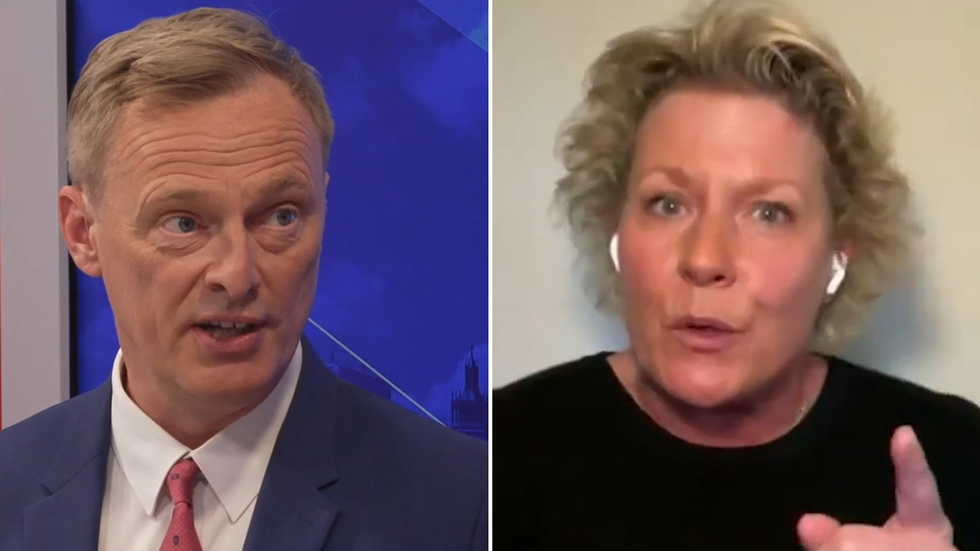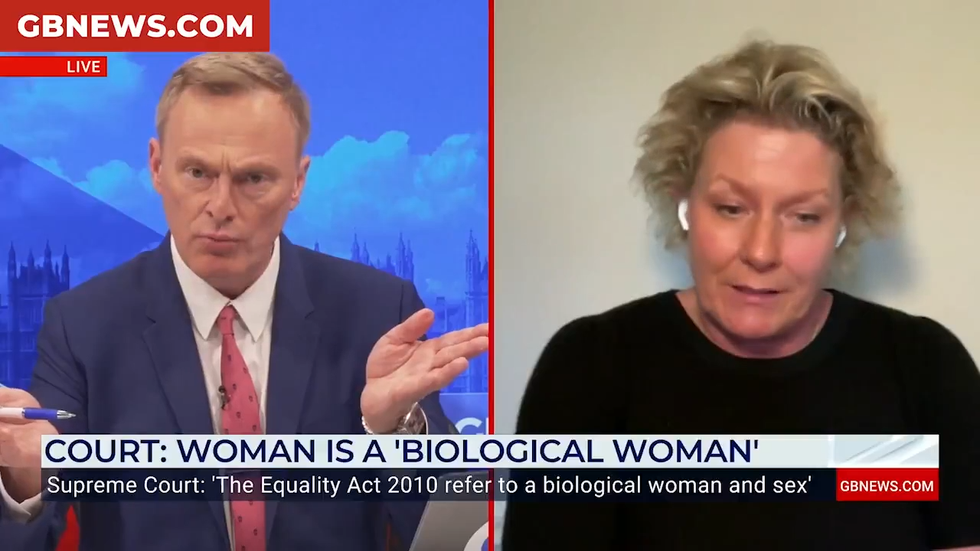‘The law disagrees with you and so does biology’: GB News star Martin Daubney left gobsmacked by doctor running trans care clinic
GB NEWS
Martin locked horns with Dr Helen Webberley live on GB News
Don't Miss
Most Read
Trending on GB News
Trans women should look at the full details of the UK Supreme Court’s ruling on the definition of a woman, doctor Helen Webberley has said on GB News.
Webberley, who founded GenderGP, an online clinic which aims to assist trans people, argued on the People’s Channel that the Supreme Court failed to provide a clear definition for what a biological woman is.
Her argument shocked Martin Daubney who went about grilling the controversial former NHS GP.
“The court ruling today was that a trans woman isn’t a woman”, said Martin.

Daubney clashed with Webberley on GB News
GB NEWS
She responded: “What the Supreme Court was explaining was, the literal interpretation of the Equality Act is a woman is biological. They were not at all saying that a trans woman is not a woman.
“I think that’s really important for all those trans women out there who are maybe finding this difficult to interpret. It’s difficult and challenging.
LATEST DEVELOPMENTS
“But trans women are most definitely women.”
Martin interjected to argue: “The law disagrees with you and so does biology.”
He continued: “If legally your position isn’t recognised and biologically it doesn’t, what supports your position? Is it ideology?”
Webberley responded by arguing trans women can claim sex discrimination and the ruling does not “give the automatic right to ban trans women from women’s spaces”.

Webberley sought to reassure trans women
GB NEWS
It comes after the UK Supreme Court has ruled that the word "woman" in the 2010 Equality Act refers to biological sex rather than gender identity.
The landmark decision, made yesterday, could have significant implications for transgender rights across Britain.
The five judges emphasised their ruling was limited to interpreting the specific civil rights legislation.
The ruling came in response to challenges brought by campaign group For Women Scotland (FWS), who initially contested the definition of "woman" in Scottish legislation from 2018.

A woman celebrates the landmark Supreme Court ruling
PAThat legislation had set targets to increase the proportion of women on public boards and included transgender women in its definition.
FWS appealed subsequent guidance, with the case eventually reaching the Supreme Court.
The court stated: "It is not the role of the court to adjudicate on the arguments in the public domain on the meaning of gender or sex, nor is it to define the meaning of the word 'woman' other than when it is used in the provisions of the EA 2010."
The judges explained that gender reassignment and sex are separate bases for discrimination under the law.
 Supreme Court makes landmark ruling on definition of a woman that will infuriate trans activists
Supreme Court makes landmark ruling on definition of a woman that will infuriate trans activistsEmployment lawyer Hannah Ford warned the ruling could have serious implications for workplace equality.
She cautioned that employers may now legally exclude transgender women from female-only spaces.
Ford described the shift as "regressive" and suggested it could roll back inclusive workplace policies that many organisations have already implemented.
Author J.K. Rowling celebrated the judgement on social media, saying: "It took three extraordinary, tenacious Scottish women with an army behind them to get this case heard by the Supreme Court."
LGBTQ+ rights group Stonewall expressed "deep concern" over the ruling's implications.
Scottish Trans said they were "really shocked" by the decision which "reverses twenty years of understanding."
The ruling represents a potential turning point for transgender rights in UK workplaces.
Legal experts suggest this interpretation of the Equality Act could undermine progress made in recent years towards more inclusive environments.
The decision highlights ongoing tensions between protecting women's sex-based rights and ensuring equal treatment for transgender individuals.








